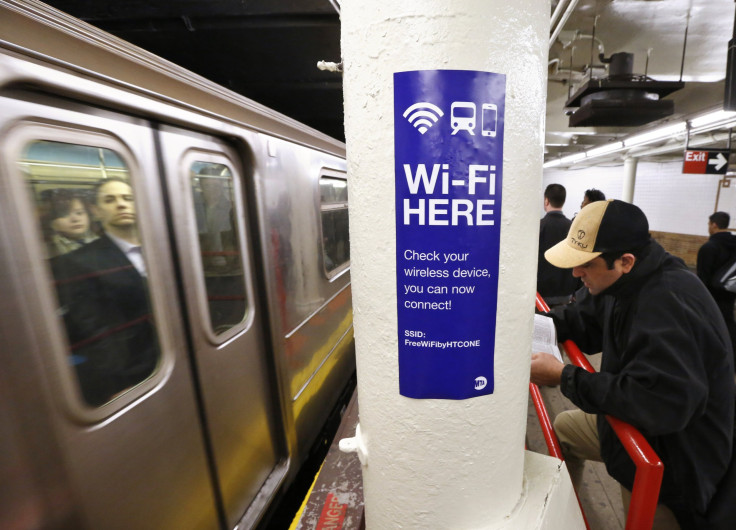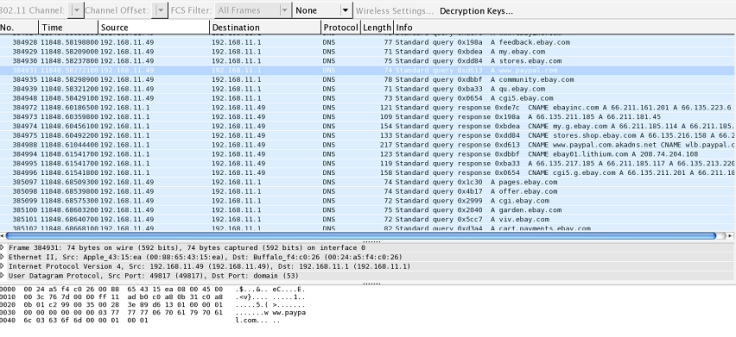How To Protect Yourself From Hackers At The Coffee Shop

“You are approaching your monthly data limit.”
As consumers juggle more data-sapping devices on the go, they're trying to avoid getting that warning from their wireless Internet carriers by using free public Wi-Fi -- at their peril.
Wi-Fi access is becoming as ubiquitous as the airwaves it travels through: The bank HSBC began rolling out free Wi-Fi to its customers in the U.K. this week, New York City recently announced plans to transform old payphones into touchscreen Wi-Fi hotspots, and Internet service providers (ISPs) are building wireless hotspots to offer their customers more data on the go.
But as free Wi-Fi becomes more popular worldwide, it can make data more susceptible to hackers lurking in the coffee shop, or in the bank, or along the sidewalk. Experts warn that logging in to unsecure networks can give hackers all they need to steal your identity -- or your savings.
"As people find that connectivity is more common, they assume that it is secure," Wil Rockall, an Internet security specialist, told the BBC. "Once they've got your details, they can clear out your account.”

If you've ever worked at a large company or tried to navigate the shady world of file-sharing, you may have heard of Virtual Private Networks, or VPNs. They are services that encrypt, or protect, your data as it travels from a server to your device, and then decrypt it at the other end. In the wake of Edward Snowden’s revelations about the NSA secretly collecting data on the American public, interest in VPNs is up.
We know that we need antivirus software and firewalls for our home PCs, but what can happen to our smartphones when we, say, make an Amazon purchase via a hotel Wi-Fi?
“Everybody is carrying around devices that are generally set to use Wi-Fi if possible. The problem with this is that when people are moving from their relatively secure home environment to free Wi-Fi, they are moving to a very insecure environment,” Kent Lawson, CEO of Private Communications, told International Business Times.
Most public Wi-Fi – whether at a local Starbucks or a hotel – uses no password or one that's given to anyone who asks. Hackers nearby can use a basic adaptor to capture traffic from these networks using a cheap adaptor and a laptop, or even a smartphone. They can capture truckloads of personal information by scanning the bits of data that go through a public Wi-Fi hotspot, a process known as sniffing. If they are a little more enterprising, they can set up their own network by stealing the bandwidth from public Wi-Fi, and direct users to their rogue hotspot.
But setting up a VPN is no easy task, certainly not as easy as downloading an app or connecting to a Wi-Fi network. Among the solutions on the market is Private WiFi, a VPN created by Lawson's company and available free to all AOL users through a partnership deal.
“We developed it to be simple enough for normal people to use it. It decides whether it needs to be activated or not,” Lawson said. “It should be as easy as an antivirus.”
Using a VPN can protect your personal information, even if you’re logging into a Wi-Fi hotspot set up by a hacker looking for your credit card information as you shop online. Private WiFi, explains Lawson, encrypts customer information to and from its nearest server.
“We are very popular with AOL customers, who are not always the most technically sophisticated people in the world,” Lawson said. “The geeks have VPNs, the large corporations have them. We’ve designed this for everybody else.”
Private WiFi charges customers by the gigabyte – $1.99 for one gigabyte, and $7.99 for 10 -- which do not expire. It also offers discounts for monthly and annual customers. While there are free options out there, few boast the robustness of Private WiFi, or its widespread availability – the company offers apps for Windows, Mac, iOS and Android.
© Copyright IBTimes 2024. All rights reserved.




















